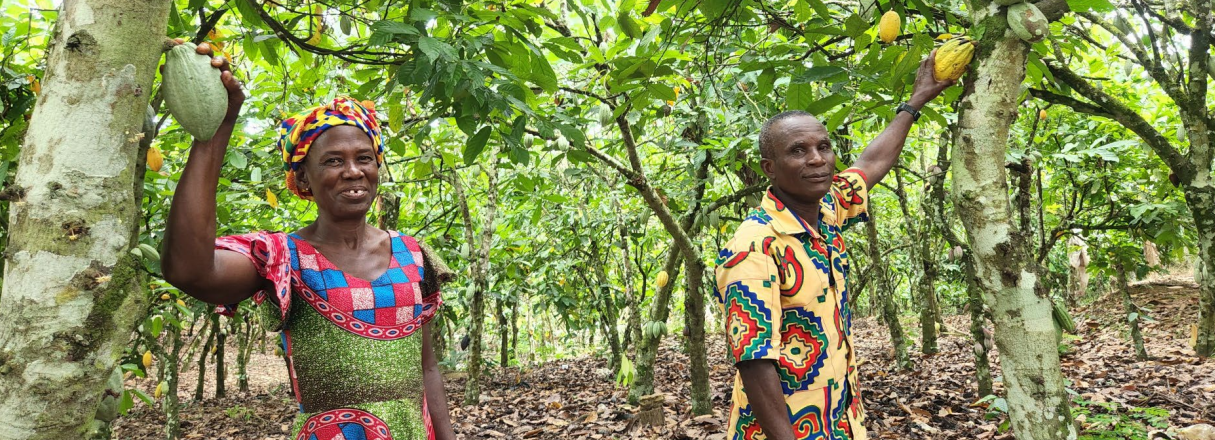Introduction
Ghana is the second-largest cocoa producer in the world, with cocoa representing a vital part of the country’s economy. Gender inequality is pervasive within the cocoa sector due to a combination of unequal access to productive resources and harmful gender norms at the household, community, and institutional levels. Although women are involved in nearly all the steps of cocoa production in Ghana, cocoa is largely considered a man’s crop, and women’s roles and contributions remain unrecognized, undervalued, and often unpaid. Land ownership is a key barrier; because women typically do not own or lease land on their own, they are not perceived as farmers by themselves, their families, communities, or other stakeholders in the supply chain. Commodity trading companies are responsible for procuring cocoa from smallholder farmers for major international chocolate brands. These companies not only interact with farmers on the technical aspects of cocoa production but also play a critical role in cocoa communities, often implementing social development initiatives in partnership with chocolate brands and international development funders and organizations.
In this context, the United States Agency for International Development (USAID) partnered with Ecom Agroindustrial Corp. (ECOM), a global commodity trading and processing company, to promote gender equality and empower women in the cocoa value chain in Ghana. The goal was to increase gender-responsiveness in ECOM’s internal policies and practices and pilot targeted women’s empowerment activities in cocoa communities where the company operates. Working directly with a cocoa commodity trader provides opportunities for greater sustainability and scalability of USAID investments, as the company can replicate successful gender-responsive approaches in multiple cocoa-sourcing communities in Ghana and West Africa, particularly in future partnerships with chocolate brands. The partnership was implemented between 2020 and 2023 under the USAID Integrated Land and Resource Governance (ILRG) activity, a global mechanism managed by Tetra Tech. Preparatory work, including an initial gender analysis and project design, started in 2020 and was delayed due to the COVID-19 pandemic. Implementation of activities with ECOM staff and in cocoa communities began in mid-2022 and concluded in mid-2023.
The project was informed by an initial gender analysis that provided a better understanding of ECOM’s gender equality practices and capacity, as well as the barriers and opportunities for women’s empowerment, particularly related to access to productive resources and income diversification opportunities. The gender analysis found that although ECOM promoted gender equality within the company and in its work with cocoa farmers, it lacked clear policies, strategies, and expertise to guide and institutionalize such efforts. Women’s representation in field positions was very low, and ECOM signed contracts with individual farmers based on their status as landowners, which meant most contracts were signed with men. Despite the company’s attempts to provide men and women equal opportunity and access to resources, in practice, women’s lack of land ownership led to less access to inputs, training and extension, technology, and financial services. Harmful gender norms affected the division of labor on the farm and in the household and limited women’s benefit-sharing and decision-making power over income derived from cocoa.


